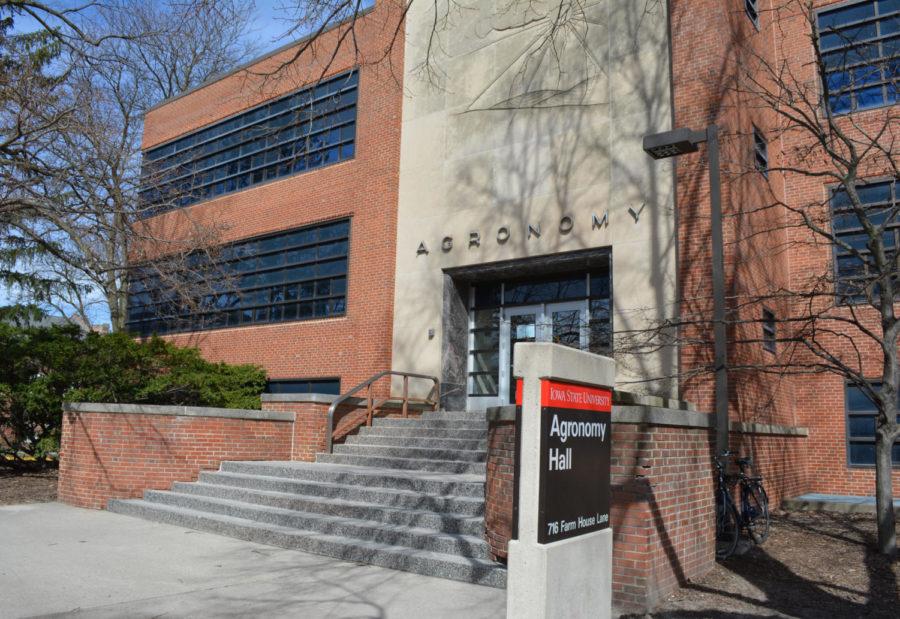Ward: ‘The Bachelor’ is more irony than romance
January 20, 2015
Imagine you were attending a party — I mean we’re in college so the phenomenon is not unheard of. You walk into said party and you start chatting to this person whom you have never met before, the conversation is going fine but let’s face it, this person is still basically a stranger. Then five minutes into this semi-awkward conversation the person whips out a rose and asks, “Will you accept this rose?” The majority of us would initially be dumbfounded as to why this is happening, after all you just met this individual. Then, that would be followed by the wondering of, why is this creeper handing out roses to random girls?
Does this plot line sound familiar? Probably, due to the fact that it is essentially the outline of the popular ABC reality show “The Bachelor,” just without the dramatic set up. The reason I took the events of the show out of context is to point out the pure irony that “The Bachelor” and all the spinoff shows were built upon.
Reality TV in and of itself is contradictory because of the lack of reality shown within them. But the irony not only exists in the blanket category of reality TV, it has worked its way into the shows themselves, specifically “The Bachelor” and caused them to contradict everything our society stands for, yet we continue to sprint to our TV’s to watch the drama unfold.
In case you’ve been living under water for the last 13 years, “The Bachelor” happens like this: one man stands in front of a gigantic house and waits for limos full of screaming women to pull up, and at the first cocktail party he meets them all through very brief conversations. At the end of the first episode, the bachelor will narrow down the women based on essentially who flirted the most and who showed the most skin. Then with each episode, he goes on dates with the remaining girls, both group and one-on-one, to determine who he will kick to the curb or save with a rose at the end of the episode.
In the case of this season, the bachelor is Chris Soules from Arlington, Iowa — represent — and he is just beginning his journey of picking through 30 women to find his wife. Essentially, this show is a lot of pretty people going a lot of pretty places but there is nothing about it that would ever be considered okay in the eyes of society if it wasn’t on television.
Let’s start with the whole one man dating about 25 different women thing. I don’t know a single woman who wouldn’t get jealous if they caught their man even talking to another girl, let alone when they found out that he’s dating someone else. If one man was caught seeing 25 different women in real life it would either be on the news the next day or the basis for a really cheesy chick flick. Yet, because of its addictive quality, we let it slide on television even though it is against our natural beliefs.
The last point that I personally see as most ironic are the “rules” put in place by the creators of the show. At the start of the episode that aired Jan. 12, Chris was given the option to bring back a girl he had just five minutes ago kicked off. On most other games shows, where you’re off the show that’s all she wrote, but the host of the show, Chris Harrison, reminded Soules that this is his real life and if he wants to bring her back, he can.
That statement killed me because they are doing just about everything in their power to make viewers believe that this is actually the bachelor’s real life. Somehow, through some sort of tricky view psychology no doubt, the show has actually managed to persuade viewers that going on dates in helicopters and jumping off yachts on the first date is totally normal. I don’t know about the rest of you but none of the dates I’ve ever been on included fancy, expensive transportation.
If all of this was not enough to bring you back to actual reality, there is one more thing that we should always bear in mind as we watch various extravagant dates: only two of the couples to emerge from the drama of “The Bachelor” are still together out of the 18 seasons that have been completed. That is .111 percent of the relationships that actually worked out. Turns out that happily ever after is a lot harder to see through fruition after the roses end.

















